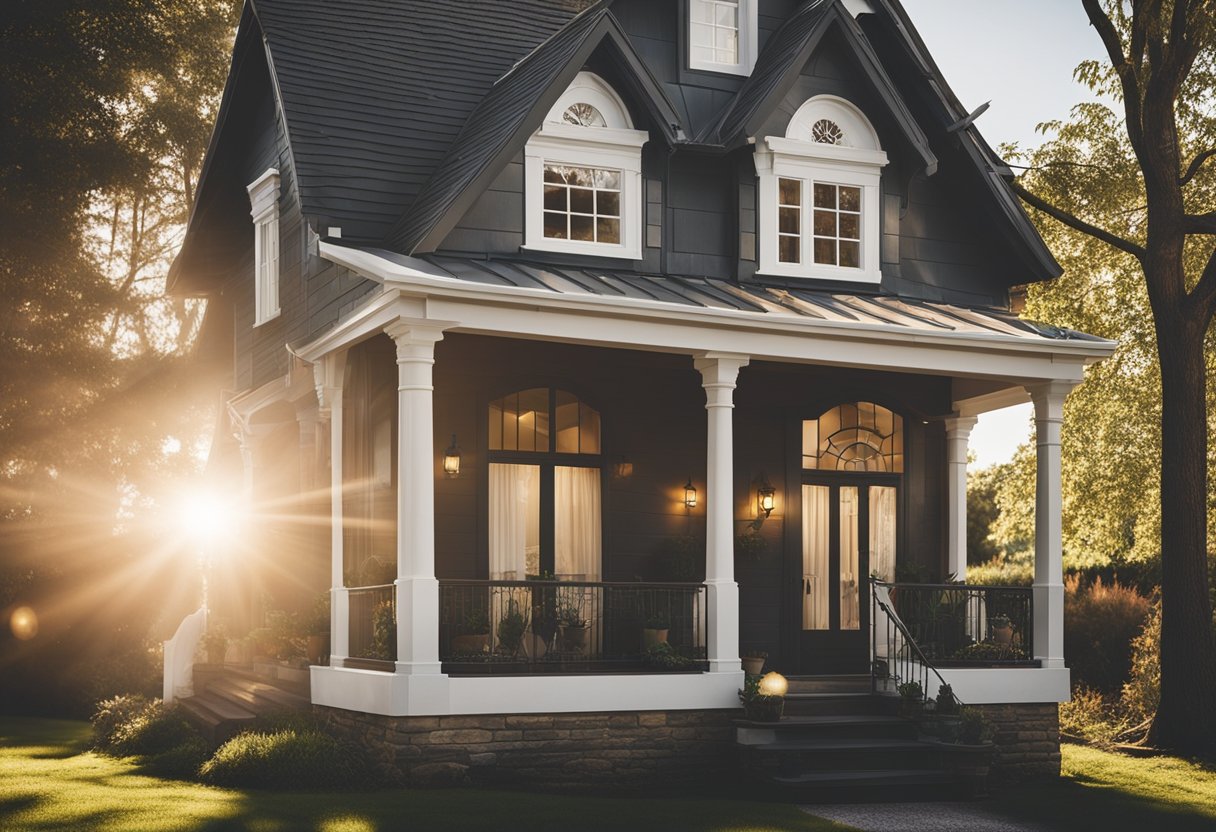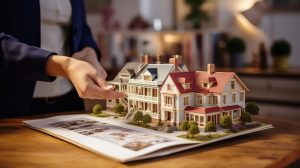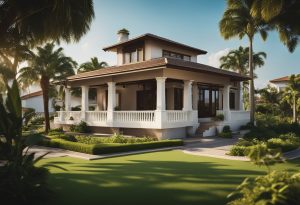An east-facing house is a property that has its main entrance facing the east direction. According to Vastu Shastra, the ancient Indian science of architecture, this direction is considered to be auspicious as it is associated with the deity Surya (the Sun God), who is believed to bring in positive energy and good health. Therefore, many people prefer to buy an east-facing house.
However, some people believe that an east-facing house is not suitable for everyone. They argue that the direction of the sun can cause certain problems such as excessive heat and glare, which can be uncomfortable during the summer months. Additionally, it is believed that an east-facing house may not be suitable for people born under certain zodiac signs. In this article, we will explore the advantages and disadvantages of owning an east-facing house and provide readers with the information they need to make an informed decision when buying a property.
Vastu Shastra and Directional Significance
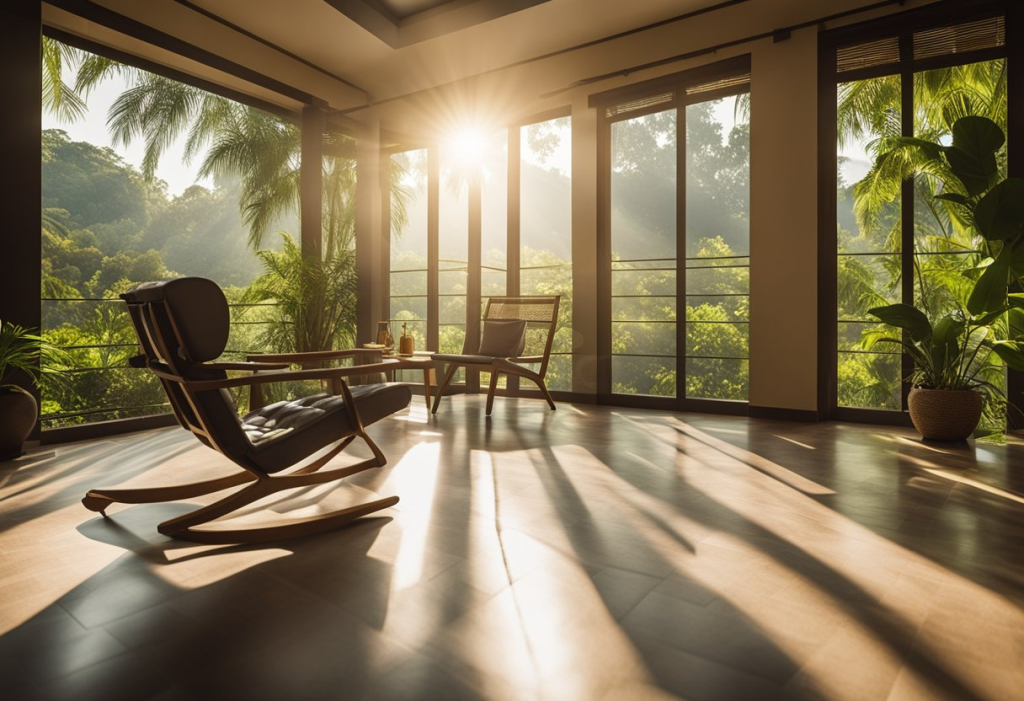
Historical Context of Vastu Shastra
Vastu Shastra is an ancient Indian science of architecture and construction that has been in practice for over 5,000 years. The word “Vastu” means dwelling, and “Shastra” means science or knowledge. The principles of Vastu Shastra are based on the concept of the five elements – earth, water, fire, air, and space – and their influence on human life. The practice of Vastu Shastra originated in the Vedic period, and it has been an integral part of Indian culture ever since.
The Importance of Directions in Vastu
According to Vastu Shastra, the direction in which a house or building is facing plays a crucial role in determining its overall energy and prosperity. Each direction is associated with a specific element, and the placement of different rooms and objects within the house should be in accordance with these elements. For example, the east direction is associated with the element of the sun, and it is considered to be the most auspicious direction for a house or building.
East-Facing Advantages in Vastu
An east-facing house or building is considered to be highly beneficial according to Vastu Shastra. This is because the sun rises in the east, and an east-facing house receives the maximum amount of sunlight during the day. This helps to create a positive and energetic environment within the house, and it is believed to bring good health, wealth, and prosperity to the occupants. Additionally, an east-facing entrance is considered to be highly auspicious, as it allows the positive energy of the sun to enter the house.
Related Posts:
Benefits of an East Facing House
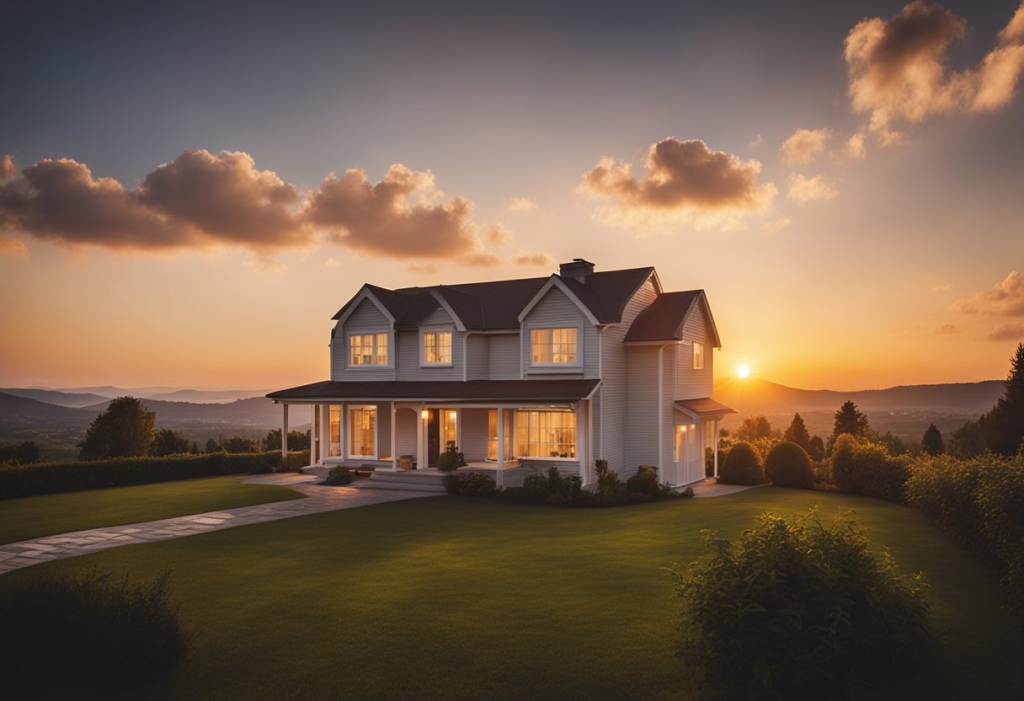
An east-facing house can have several benefits that make it a popular choice among homeowners. In this section, we will discuss some of the benefits of owning an east-facing house.
Enhanced Natural Light
One of the primary benefits of an east-facing house is that it receives ample natural light in the morning. The sun rises in the east, and an east-facing house is positioned to receive the first rays of the morning sun. This can make the house feel brighter and more welcoming, and can also help to reduce the need for artificial lighting during the day.
Improved Health and Well-being
Another benefit of an east-facing house is that it can have a positive impact on the health and well-being of its occupants. Exposure to natural light in the morning has been shown to regulate the body’s circadian rhythms, which can help to improve sleep quality and overall health. Additionally, the morning sun can provide a natural source of Vitamin D, which is essential for healthy bones and immune function.
Garden and Plant Growth
If you are a keen gardener or enjoy growing plants, an east-facing house can be an excellent choice. The morning sun is ideal for most plants, and an east-facing garden will receive ample sunlight throughout the day. This can help to promote healthy growth and can also make your garden more attractive and enjoyable to spend time in.
In summary, an east-facing house can have several benefits, including enhanced natural light, improved health and well-being, and better garden and plant growth. If you are considering buying a house, an east-facing property may be worth considering.
Potential Drawbacks
Overheating Risks
While an east-facing house can be beneficial for capturing the morning sunlight and warmth, it can also lead to overheating during the summer months. The east-facing rooms can become uncomfortably hot and stuffy, especially in the afternoon when the sun is at its highest. This can cause discomfort for the occupants and increase the need for air conditioning, which can be expensive and environmentally unfriendly.
To mitigate this issue, it is recommended to install shading devices such as blinds, curtains, or external shading systems on windows and doors facing east. These can help to block out the direct sunlight and reduce the amount of heat entering the house. Additionally, using light-coloured or reflective materials for roofs and walls can reflect the sunlight and reduce the heat absorption.
Privacy Concerns
Another potential drawback of an east-facing house is the lack of privacy. The front of the house is usually facing the street or the public area, which can make it difficult to maintain privacy and security. Passers-by and neighbours can easily see into the house, which can be uncomfortable for some people.
To address this issue, it is recommended to install privacy screens, fences, or hedges around the property. These can help to create a barrier between the public area and the house and provide a sense of privacy and security. Additionally, installing opaque or frosted glass on windows and doors facing the public area can prevent people from seeing inside the house while still allowing natural light to enter.
Overall, while an east-facing house can have its benefits, it is important to consider the potential drawbacks and take appropriate measures to address them.
Market Perception and Resale Value
When it comes to market perception and resale value, an east-facing house is generally considered to be a good investment. Many people believe that an east-facing house brings good luck and positive energy, which can be a selling point for potential buyers.
Furthermore, an east-facing house is often preferred because it allows for plenty of natural light in the morning. This can be a major selling point for people who value natural light in their home. Additionally, the rooms at the front of the house that are facing east won’t get too hot in the afternoon, which can be a benefit during the summer months.
While there is no guarantee that an east-facing house will sell for more than a west-facing or south-facing house, market perception can play a role in determining the resale value. If potential buyers perceive an east-facing house to be more desirable, they may be willing to pay more for it.
It’s worth noting that other factors, such as location, size, and condition of the house, are also important when it comes to determining the resale value. However, an east-facing house can be a positive factor that adds to the overall appeal of the property.
Frequently Asked Questions
What are the potential drawbacks of residing in an east-facing property?
According to Vastu Shastra, an east-facing house can have some potential drawbacks. For instance, if the house is not designed correctly, it may attract negative energy, which can cause health problems, financial issues, and relationship troubles. Moreover, if the house is too small, it may not receive enough natural light, which can lead to a lack of energy and vitality.
How does an east-facing orientation benefit a house according to Vastu Shastra?
As per Vastu Shastra, an east-facing house receives the first rays of the sun, which are considered auspicious. This orientation is believed to bring prosperity, happiness, and good health to the occupants of the house. Additionally, an east-facing house allows for ample natural light and ventilation, which can help create a positive and welcoming atmosphere.
Is an east-facing house considered auspicious in Feng Shui principles?
Yes, an east-facing house is considered auspicious in Feng Shui principles. According to Feng Shui, the east is associated with the element of wood, which symbolizes growth, vitality, and new beginnings. Therefore, an east-facing house is believed to attract positive energy and good fortune.
Are there specific astrological signs for which an east-facing house is particularly favourable?
As per astrological beliefs, there are specific signs for which an east-facing house is particularly favourable. For example, individuals belonging to the zodiac signs of Aries, Leo, and Sagittarius are said to benefit from an east-facing house, as this orientation is believed to enhance their creativity, leadership skills, and overall success in life.
What are the Vastu guidelines for designing an east-facing house with a prayer room?
According to Vastu guidelines, a prayer room in an east-facing house should be located in the northeast direction. The room should be designed in such a way that it receives ample natural light and ventilation. Additionally, the idols or pictures of deities should be placed in the east or west direction, and the person offering prayers should face east or north.
In terms of prosperity and well-being, how does an east-facing house compare to a west-facing one?
As per Vastu Shastra, an east-facing house is considered more favourable than a west-facing one in terms of prosperity and well-being. This is because an east-facing house receives the first rays of the sun, which are believed to bring positive energy and good fortune. Additionally, an east-facing house allows for ample natural light and ventilation, which can help create a positive and welcoming atmosphere.

